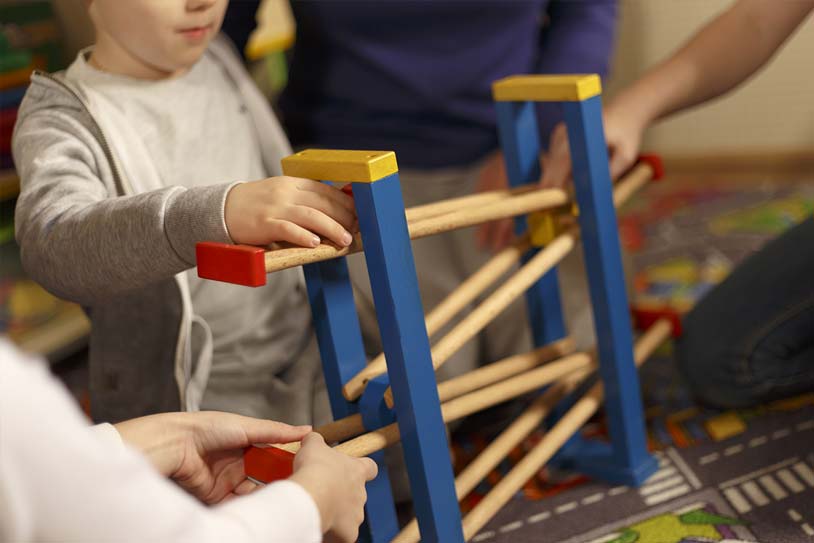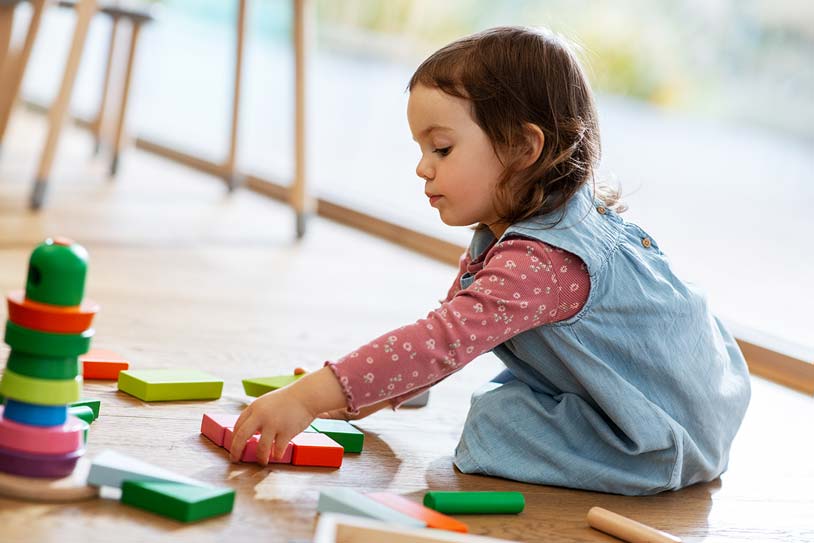Every child deserves a safe place to express themselves, especially when they face difficult emotions or experiences. That’s exactly what play therapy provides. Let’s explore what play therapy is, how it works, and why it’s an effective way to help children heal with insight from Stenzel Clinical.

Understanding Play Therapy
Play therapy is a type of psychological treatment designed especially for children. Instead of using words to talk through feelings, children use to play the natural language of kids—to express their emotions and navigate life’s challenges. Play therapy is most common for ages 3 to 12 but can be adapted to suit older children or teens.
As many local Illinois therapists explain, play therapy provides a safe space filled with toys, sand trays, art supplies, dolls, puppets, and more. A professional play therapist observes the child’s choices and behaviors during play, identifying themes like fear, anger, or insecurity.
How Play Therapy Works
- Creating a trusted environment. At Stenzel Clinical, the journey begins by building rapport in a warm, non-judgmental setting where a child can feel comfortable and heard. Local practices highlight that trust is the foundation of all healing.
- Observation and interpretation. Therapists note the child’s choice of toys, storytelling, and play themes. For example, a child who keeps building walls might be expressing feelings of protection or anxiety.
- Guided play. As comfort grows, the play therapist may introduce structured activities—like role‑playing with puppets or drawing feelings to help children explore specific emotions, develop problem-solving skills, and practice coping strategies.
- Involving parents. Stenzel Clinical works closely with families, providing feedback and practical tools for parents to support their kids at home. This mirrors community-based models in Naperville, where therapists regularly coach parents to reinforce therapy gains.
Types of Play Therapy
There are two major styles:
- Non-directive (child-centered): The child leads the session, choosing toys and themes freely. The therapist follows their cues and offers support, helping the child build trust, self‑direction, and confidence.
- Directive (structured): The therapist provides specific tasks or activities aimed at specific goals like anger management or processing trauma. Sometimes also called “structured play therapy”.
At Stenzel Clinical, therapists are trained in both approaches and personalized sessions based on the individual needs of each child.
What It Helps With
Play therapy supports healing across many issues:
- Anxiety, sadness, or behavioral problems: Children struggling with big emotions or trouble at home, school, or with peers benefit from learnings how to identify and express their feelings.
- Trauma and loss: Children who have experienced grief, abuse, medical challenges, or family upheaval can process difficult experiences through imaginative play.
- Developmental or social struggles: Whether dealing with ADHD, autism, or social anxiety, play therapy supports skill-building for social interaction, emotional control, and self-regulation.
- Family transitions: Divorce, blended families, or relocation can be emotionally confusing. Play sessions help children handle change and feel more secure.
Why Play Therapy Works
Local experts confirm play therapy’s powerful impact:
- In their own language. Children naturally use play to make sense of the world, so therapy in this form is more meaningful than forced conversation.
- Empowerment and mastery. Through play, children experience control, decision-making, and self‑acceptance all vital for healthy self-esteem.
- Building coping skills. Whether through pretend problem-solving or creative expression, children practice healthier ways to handle stress.
- Strong parent-therapist-teamwork. Involvement of parents magnifies progress, creating support that lasts beyond the playroom.
- Backed by science. Decades of meta-analyses show moderate to high positive results often matching or exceeding talk-based therapy especially when parents are involved.

What to Expect at Stenzel Clinical
Stenzel Clinical follows a holistic, skill‑based model:
- Certified play therapists. Clinicians are trained in both non‑directive and directive methods, with techniques tailored to the child’s background and goals.
- Session flow. Typically, each play session lasts between 30-45 minutes, scheduled weekly. The duration varies, often around 12-20 sessions depending on the child’s needs.
- Parent feedback. Stenzel Clinical ensures clear communication with parents. Caregiver guidance is built into every stage.
- Measurable growth. Therapists track changes in play themes, emotional expression, and behavior to adjust treatment plans and celebrate milestones.
How to Get Started
- Initial consultation. Stenzel Clinical begins with an intake session to understand your child’s strengths, challenges, and goals.
- Comfort meeting. A brief introductory play session helps your child feel safe and familiar.
- Regular sessions. A personalized treatment plan is created, followed by weekly play therapy meetings.
- Progress reviews. Parents receive updates and strategies after every few sessions to reinforce healing at home.
- Graduation plan. As growth becomes consistent and symptoms improve, the therapist plans a transition often tapering sessions and developing a maintenance routine.
Why Choose Stenzel Clinical
- Kid-first approach: Every session centers on the child’s perspective of what matters to them.
- Evidence-based methods: Techniques are proven effective and tailored to each situation.
- Collaborative care: Parents, teachers, and caregivers work as partners in healing.
- Compassionate atmosphere: Warm, guided, and trusting environments help children thrive emotionally.
Real-Life Example
A nine-year-old at Stenzel Clinical who experienced parental divorce showed anger by smashing blocks in play. Over time, with guided directive sessions, the child began role-playing peaceful resolutions, built emotional vocabulary, and transitioned to gentle play themes. Parents reported fewer outbursts and improved family connection demonstrating how play therapy heals from both inside and outside.
Play therapy is a powerful child-centered approach that:
- Uses play as a safe path for children to communicate feelings.
- Help children process trauma, develop resilience, and build social‑emotional skills.
- Works best when guided by trained therapists and supported by families.
- Is well‑supported by research and widely practiced in Wheaton, Naperville, and beyond.
At Stenzel Clinical, play therapy is more than games it’s a structured, compassionate method that helps children heal, grow, and flourish in all areas of life.
“At Stenzel Clinical, play therapy is more than games it’s a structured, compassionate method that helps children heal, grow, and flourish in all areas of life.
Stenzel Clinical Services
Recent Posts
Reclaiming the Savanna Brain
In the modern world, we are surrounded by an abundance of food, safety, and information. Yet, paradoxically, we are [...]
Navigating Digital Distractions
You settle in to tackle the work you've been putting off, but interruptions are guaranteed. First, the inevitable: your [...]
Common Therapy Myths That Keep People From Getting Help
There are a lot of stories people tell themselves about therapy that stop them from reaching out. Some of [...]



